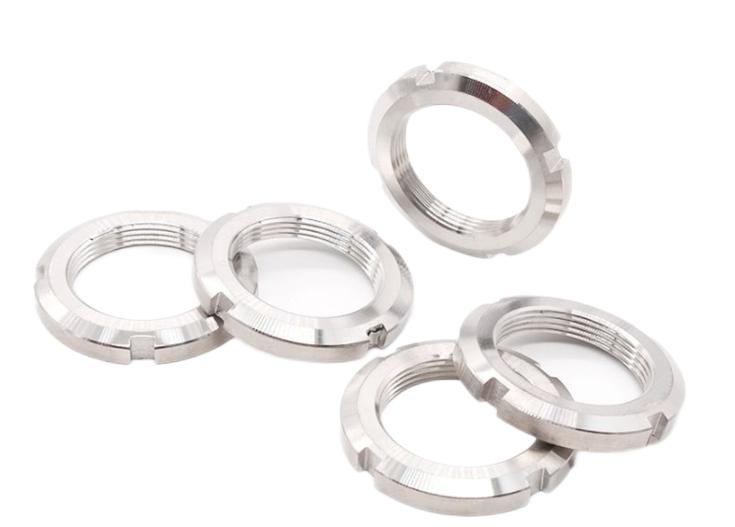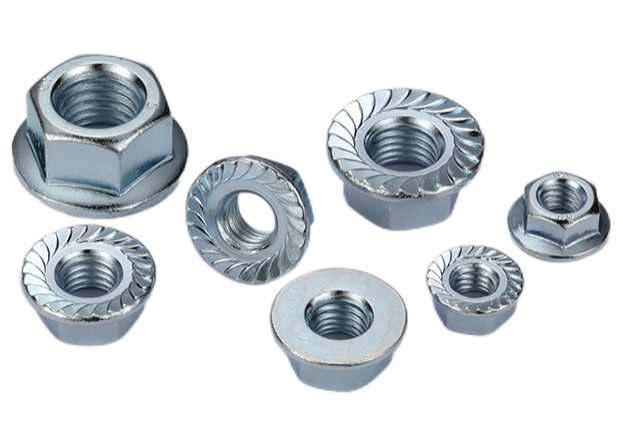Teflon Nuts
- Excellent Corrosion Resistance: It shows inertness to most chemicals and solvents such as strong acids, strong alkalis, water, and various organic solvents, and can maintain stable performance in harsh chemical environments.
- Good High and Low Temperature Resistance: It can maintain good mechanical toughness in the temperature range from – 196°C to 250°C, adapting to extreme temperature conditions.
- Outstanding Non-stickiness: It has an extremely low surface tension and hardly adheres to any substances. This makes it easy to disassemble and clean, preventing debris from adhering and affecting its use.
- Low Friction Coefficient: It is one of the solid materials with the lowest friction coefficient, has excellent lubricating properties, can reduce wear and improve the operating efficiency of equipment.
- Good Insulation: It has excellent electrical insulation properties, can effectively prevent current conduction and ensure equipment safety.
- Excellent Anti-slip Property: It is not easy to loosen even in a vibrating environment and can be tightened more firmly when screwed, which can be used in scenarios prone to vibration.
Manufacturing Process of Teflon Nuts
- Raw Material Preparation: Select polytetrafluoroethylene resin as the main raw material, and add additives such as lubricants and pigments as needed to improve processing performance or give specific colors.
- Molding Processing: Process the mixed materials into the shape of nuts through methods such as compression molding and extrusion molding.
- Surface Treatment: Conduct surface treatment on the formed nuts, such as grinding and polishing, to improve surface finish and dimensional accuracy.
- Coating Treatment: A Teflon coating can be applied to the surface of the nuts by spraying, dipping, etc. to enhance their performance.
- Heat Treatment: Conduct high – temperature heat treatment on the processed nuts to further enhance their physical properties and chemical stability.
Selection Precautions for Teflon Nuts
- Compatibility: Select Teflon nuts that are compatible with the fastener materials and sealing materials according to the usage environment and requirements.
- Specification Dimensions: Ensure that the specification dimensions of the nuts meet the actual usage requirements, including thread diameter, length, pitch, etc.
- Quality Certification: Choose products with quality certifications, such as Teflon nuts that meet FDA, ISO and other standards, to ensure product quality and performance.
Applications of Teflon Nuts
- Chemical Industry: Used for the connection and fixation of chemical equipment, such as reaction kettles, agitators, heating coils, etc.
- Food Industry: Applied to food processing machinery and food utensils, such as food baking trays, fish grills, pastry baking trays, etc.
- Medical Field: Teflon nuts that meet FDA standards can be used in medical devices, such as sampling equipment for analytical instruments, electrochemotherapy high – temperature insulation devices, etc.
- Aerospace: Used for the connection of components of aircraft, satellites and other aerospace equipment, ensuring structural stability in harsh environments such as high temperatures, low temperature,s, and high radiation.
- Electronics and Electrical Appliances: Used for the assembly of electronic equipment, providing good insulation and anti-corrosion protection to ensure the reliability and stability of the equipment.
- Automotive Field: It can be applied to the connection of various automotive components, improving the performance and service life of the vehicle by using its lubricity and corrosion resistance.














